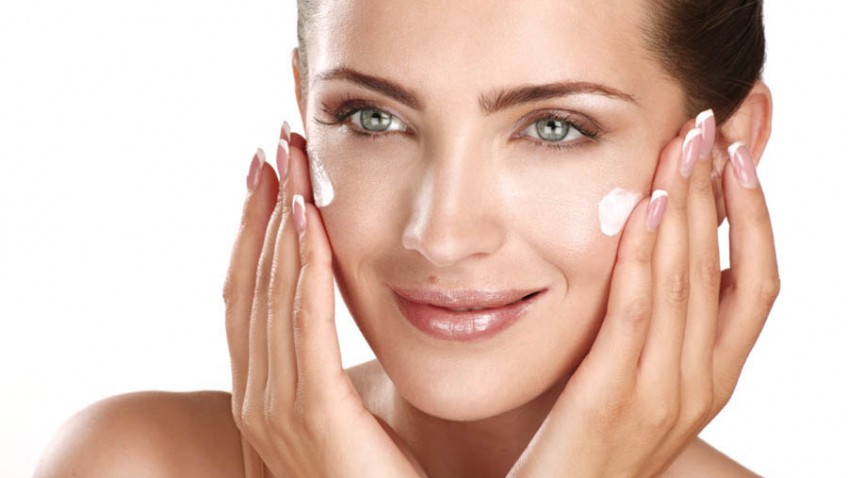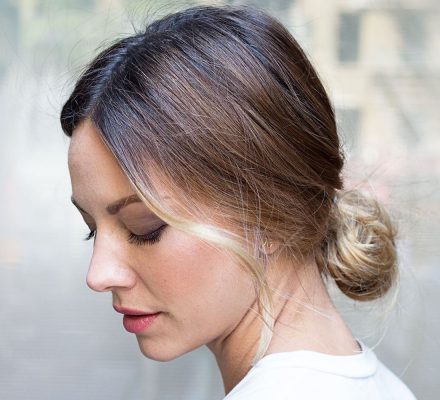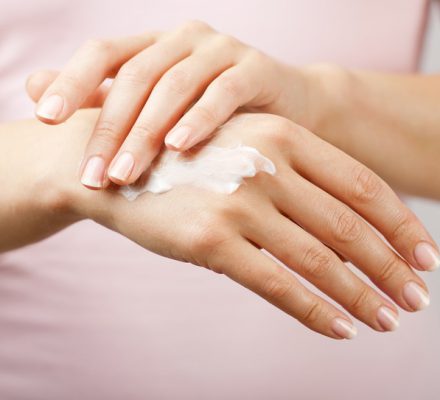A face cream is a crucial cosmetic for every woman regardless of age. We apply it in the morning before putting on makeup and in the evening before going to bed. When choosing a face cream, it is worth considering the season of the year, the skin type, and our age. A face cream designed for a 20-year-old provides different properties than a cosmetic dedicated to the skin of a 70-year-old woman. What properties do the 20+, 30+, 40+, 50+, 60+ and 70+ face creams have and what do they contain?
 20+ face cream
20+ face cream
Between the ages of 20 and 30, the processes of cell renewal that occurs in the skin begin to slow down, and the production of collagen decreases. As a consequence, the skin becomes more susceptible to the harmful effects of ultraviolet radiation and airborne contaminants. This means that around 30 years of age, the first wrinkles and discoloration appear, and the skin starts losing its firmness. Instead of waiting for these unpleasant signs of aging, it is worth counteracting them. For this reason, you should reach for a face cream marked 20+, which contains substances that fight free radicals, such as vitamin C and E, carotenoids and flavonoids. In addition, the 20+ face cream should be enriched with sunscreens that prevent the formation of wrinkles, and fruit acids that will moisturize the skin. Due to the fact that after the age of 20 we can still have acne problems, look for a 20+ face cream that contains zinc and salicylic acid, which will have a cleansing effect and reduce seborrhea.
30+ face cream
The skin of women around 30 years of age is less elastic and drier. The 30+ face cream continues to prevent wrinkle formation, but also contains substances that fight already existing fine lines and nourish the skin. Such ingredients include retinoids or hydroxyl acids – AHA. In addition, 30+ face cream should contain antioxidants, such as vitamin C and E and coenzyme Q10, which improve the skin tone and eliminate discoloration. Some cosmetics of this range have been additionally enriched with algae and peptides with regenerating properties.
40+ face cream
After 40 years of age, facial skin care requires more intensive treatments. At this time, the skin firmness is noticeably reduced and becomes thinner and less elastic. In addition, the muscles lose their volume and consequently the face oval changes, whilst the facial wrinkles become more and more visible. I general, every 10 years since about the age of 30, the number of cell divisions drops by 10%, which is now clearly visible. Because of the fact that collagen and elastin fibers are weakening, the 40+ face cream should support their reconstruction, i.e. contain large amounts of vitamin A (retinol) and C. Retinol reacts with the sun, which is why the cosmetics enriched with it must also include a higher SPF. The face of a mature woman clearly shows discolorations caused by sunburn, bruising and swelling, which is why the 40+ face cream should improve the skin tone. Such properties are delivered by the coenzyme Q10. Cosmetics for women over 40 have a heavier and thicker consistency, thanks to which the effects of moisturizing and lubricating can last longer. This is especially important because the hydro-lipid barrier in their skin is already strained. However, in the winter, this consistency will additionally protect the blood vessels against cracking.
50+ face cream
The skin of women over 50 has already lost so much collagen that it is not only 10 times thinner than the child’s skin but also flaccid, rough and dry. As a result, wrinkles are not only visible on the face, but also on the neck and neckline. Menopause changes the hormonal balance of the whole organism, among other things, it causes the secretory activity of sebaceous and sweat glands to decrease. That is why a 50+ face cream should contain large amounts of collagen that will make the skin elastic and moisturized, as well as phytoestrogens and oils that will improve its density. In the composition of such a cream also look for retinol with properties responsible for stimulating the production of new cells and coenzyme Q10, which will improve skin tone, moisturize and regenerate it, and reduce wrinkles as well. A good quality 50+ face cream should abound in hyaluronic acid, which provides the skin with proper hydration, smoothes it and protects it from drying, not to mention caffeine for improving blood circulation.
60+ Face cream
After the age of 60, the skin becomes even thinner and drier, and it ages much quicker than it used to. If it wasn’t properly taken care of, it would probably lose its flexibility. Wrinkles are deep and visible, and the oval of the face has become less distinct due to the reduction in the number of fibroblasts that are aimed at producing collagen, elastin and hyaluronic acid. The skin is easily irritated because its regenerative functions have weakened. In addition, women of this age may have problems connected to discoloration, especially if they did not provide the skin with sufficient sun protection in the past. Therefore, women over 60 should reach for cosmetics infused with CoQ10, retinol, collagen and vitamins in very concentrated amounts. 60+ face creams usually have intense lifting properties: while some of them contain algae extract that tightens the skin on the face, others have been enriched with oils, including safflower or rice bran or Karite butter, which are known for stimulating lipid production.
70+ face cream
When it comes to women over 70, there is the so-called “reversed triangle” effect; if the young girl’s the face is the fullest at the height of the cheekbones, then in older women – in the chin and jaw area. Their skin gets flaccid, dehydrated, and fat tissue loses volume, so the face shape becomes irregular. 70+ face cream should primarily moisturize and protect against sun radiation and contain a large number of antioxidants, such as vitamin C, which not only stimulates the production of collagen but also delays skin photoaging and has anti-inflammatory and immunostimulating properties. In addition, it strengthens blood vessels, improves skin tone and lightens discoloration. 70+ face cream usually contains retinol and coenzyme Q10. Some cosmetics of this type have been enriched with stem cells, for example from Swiss apple, grape seed, elderberry, melon, rose or rice shoots.



Leave a Reply